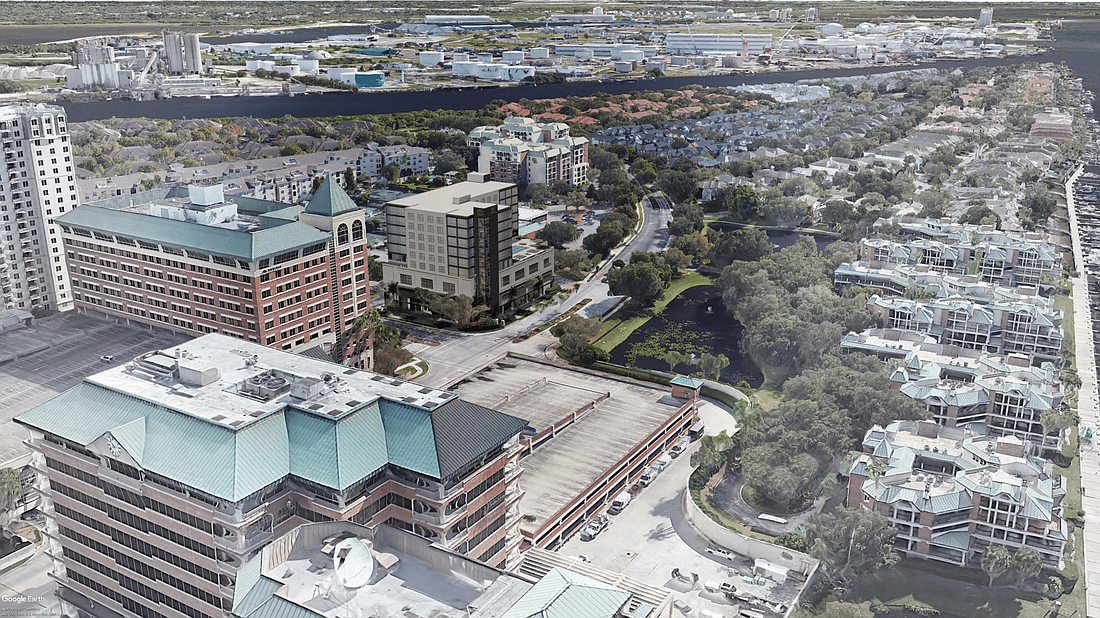- December 13, 2025
-
-
Loading

Loading

Tampa real estate developer Punit Shah has changed the plans for a $40 million Harbour Island hotel his company is looking to build, as he again tries to gain Tampa’s City Council’s approval, this time at a Nov. 10 meeting.
The updated plan calls for the number of rooms to drop from 180 to 145, a 20% reduction, the number of parking spaces to drop from 288 to 115, a 60% reduction and the number of floors to drop from 12 to 10. A planned rooftop bar with views of the city has been eliminated.